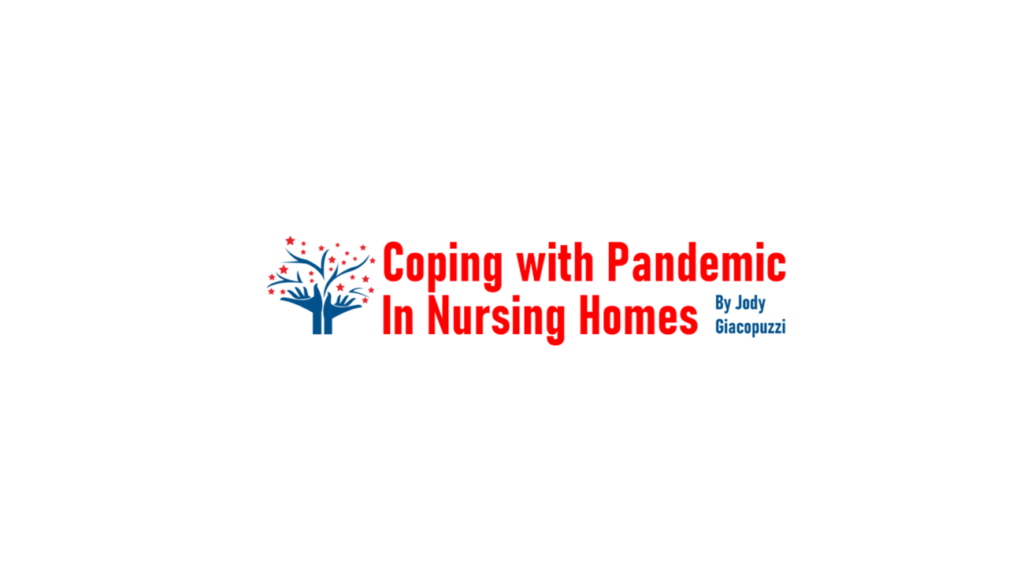
Finding Meaning in Your Chosen Profession Reduces Burnout and Improves Job Satisfaction
In the wake of the COVID-19 pandemic, lots of people worldwide have found themselves staying home from work in an effort to slow the spread of the novel Coronavirus. This hasn’t been the case for everyone, though, including staff who work in nursing homes. From nurses, nursing aides, and dietary staff to administrators, activity coordinators, and housekeeping, and social service staff, nursing home employees have put their lives on the line and continued showing up to work to care for those who need long-term care.
Working in a nursing home is already a challenging job. Add a highly infectious virus into the mix, though, and it’s easy to feel burned out or start to have trouble finding meaning in your chosen profession. If you’re in this situation right now, keep reading. Outlined below are some tips that will help you to change your perspective and remember how important your job really is (and how important you are).
Reasons to Find Meaning in Your Work
Even during normal times, work is a lot more enjoyable if you are able to find meaning in your everyday tasks and responsibilities. In stressful situations, especially ones like the COVID-19 pandemic that don’t have a clear end in sight, it’s even more important to find meaning and remember the importance of your chosen profession. Here are some specific benefits that you can experience by doing this:
Avoid Burnout
According to research from the University of Pennsylvania School of Nursing, 30 percent of direct-care registered nurses working in nursing homes experienced severe burnout. Another 31 percent were dissatisfied with their jobs. Individuals who work in nursing homes (in all positions, not just nurses) already deal with burnout at higher rates than other professionals. Right now, you’re likely feeling more stressed out, anxious, and tired than usual. The workload associated with your profession probably isn’t going to decrease anytime soon. To ensure you stay motivated and able to continue finding joy in your job, even on difficult days, it’s important to find meaning and remember all the good that you do on a daily basis.
Avoid Health Challenges
Chronic stress can increase your risk of experiencing several long-term and chronic health challenges, including the following:
- Heart disease
- Asthma
- Obesity
- Diabetes
- Depression
- Anxiety disorders
- Gastrointestinal issues
- Alzheimer’s disease
As someone who works in the healthcare field, you see every day how devastating these kinds of chronic health problems can be. If you don’t manage your stress (and one way to do this is by finding a deeper meaning in your work), you could increase your chances of having to deal with one or more of them yourself.
Put Your Best Foot Forward
If you’re feeling unmotivated and having trouble finding meaning in your chosen profession, there’s a good chance you won’t be doing the quality of work that you’re capable of. When you make an effort to recommit yourself to the work and put your best foot forward each day, no matter how stressed or anxious you might be feeling, you can ensure that you’re giving your patients (many of whom are likely also feeling scared or depressed themselves) the kind of care they deserve.
Build Resilience
Finally, discovering or rediscovering your “why” at work will also help you to build resilience and develop the strength you need to cope with this pandemic and come out stronger on the other side. This resilience will carry over into other areas of your life, too, and you’ll be better equipped to deal with all kinds of difficult situations.
Ways to Find Meaning in Your Work
Clearly, there are advantages that you can experience when you start finding a deeper meaning in your work. This is, of course, easier said than done, though.
If you want to recommit to your passion for your profession but are not sure where to begin, here are some tips that can help:
1. Focus on the Good You are Doing
When you are in the thick of a difficult situation, you might feel as though you are not making an impact. Perhaps the residents at your nursing home are extra stressed out or upset that they cannot see their families, for example, and are taking out that stress on you.
When things like this happen, it is easy to feel as though you are doing a thankless job. Remember, though, that you are making a significant impact on these (and other) people’s lives, whether they tell you directly that you are or not.
If you find yourself feeling as though you are not making a difference, take a step back, and then reflect on the contributions you are making. Think about all of the positive effects you’ve had on the nursing home residents you serve, as well as your coworkers and the families of your residents (who are surely grateful that you’re continuing to show up to work and care for their loved ones).
When you focus on your contributions, research shows that you can experience increased energy, improved mood, and better health. All of this, in turn, leads to more resilience.
2. Develop a Purposeful Mindset
Working to develop a purposeful mindset will help you to find more meaning in your work and remember how much of a positive impact you can make. By changing your mindset, you can overcome feelings of meaninglessness, even when you’re doing the most mundane tasks.
How do you change your mindset? Start by asking yourself some questions at the beginning of each shift. This might include questions like, “How can I have a positive impact on others today?” or “Who can I serve today?”
At the end of the day, take some time to reflect. Ask yourself what you did that had a positive impact on someone else or consider those whom you served and how you served them.
At first, it might feel strange to ask yourself these questions. With practice, though, it will start to become second nature, and that is a sign that your mindset is starting to shift for the better.
3. Change the Way You Think of Success
What does it mean to you, specifically, to be successful at your job? How are you defining a good day of work? If you are regularly feeling disappointed or disheartened at work, perhaps you need to rethink what you consider to be a successful day.
Are you currently defining success as a day when everything goes exactly as you had it planned? A day when none of your residents experience negative health symptoms or get frustrated with you? If this is the case, perhaps you need to adjust your expectations and look for different ways to feel successful.
What kinds of small victories can you celebrate? What little wins can you look for, even on difficult days? Can you make one resident smile? Can you lighten the load of a coworker just a little bit?
4. Practice Mindfulness
Mindfulness practices like meditation and deep breathing can have a big impact on your mood, your anxiety level, and your ability to find meaning in your day-to-day activities. Mindfulness has also been shown to reduce the risk of several chronic health conditions, including heart disease and many of the other illnesses outlined above.
A lot of people are intimidated by the idea of practicing mindfulness at first. It does not have to be scary, though.
There are lots of apps that will lead you through guided meditations and help you learn the basics without having to commit a lot of time. You can also practice basic breathwork techniques at any time, even when you are in the middle of a shift.
For example, try breathing in for three seconds and then breathing out for six seconds. You can practice “Box Breathing,” too, which involves breathing in for four seconds, followed by a four-second breath-hold, a four-second exhale, and then another four-second breath-hold.
You can do these kinds of practices while you are sitting or standing, with your eyes closed or open. They are versatile and great for those who do not have a lot of downtime at work.
5. Show Yourself Some Compassion
During a pandemic is not the time to be hard on yourself. In addition to changing the way you define success at your job, remember to also work on changing the way you talk to yourself.
Do not berate yourself if you do not do everything perfectly, or if you are feeling more tired or worn down than usual. This is a global crisis that we are all in right now. You are allowed to feel less than your best.
If you catch yourself feeling down or not showing yourself compassion, look for ways to turn the situation around.
Go back to the questions mentioned in the “Focus on the Good You’re Doing” section and remind yourself of the positive impact you’re having on the world by continuing to show up and do your job to the best of your abilities. Try to look for silver linings and little things for which you can be grateful, too.
6. Ask for Help
You are allowed to ask for help at any time, but this is especially true right now.
Everyone at your job is struggling to some degree, but that does not mean you have to go through this situation all alone. Now is the time for you and your colleagues to come together and support each other, not to put your heads down and isolate yourselves.
If you find yourself feeling overwhelmed or unsure of how to handle a specific situation, reach out to someone else at your job and ask for their help or advice.
Do not be afraid to seek help outside of the workplace, too. For example, do you need help getting meals on the table while you are working longer hours? Perhaps you could ask a friend or family member if they would be willing to drop off dinner (while practicing social distancing, of course) a couple of nights per week.
Remember, when you ask for help, you give others a chance to be of service. When they have a chance to serve, they are able to feel more fulfilled in their own lives. Do not deny them an opportunity to experience this.
7. Seek Connection
You might not be able to connect with others in the same way you once could. Most of us are not going out to bars after work or meeting up for brunch on the weekends anymore.
This does not mean you cannot still make connections, though. Set up video calls or phone calls with friends or family members to check-in and stay in the loop.
You might also want to consider seeing a therapist (in-person or virtually, whichever feels more comfortable for you). Connecting with a professional, someone who will understand your struggles and provide you with a safe place to vent, can be very beneficial.
8. Find Ways to Relax Outside of Work
Finally, try to find ways to relax when you are not working. For some, this might seem impossible, especially if you have kids at home who also need your help. Do your best to block off at least a few minutes per day for yourself, though.
For example, you could take a bath after work, read a few pages of a book, eat a cookie, or go for a short walk outside in the morning to get some fresh air. Every little bit of self-care counts right now, and do not forget that there is no one right or wrong way to relax and recharge.
Start Finding Meaning and Building Resilience Today
It is understandable if you have been having trouble finding meaning in your work at the nursing home recently. We are in the midst of a global crisis, after all, and healthcare workers have been hit particularly hard.
There is no need to beat yourself up if you are not feeling particularly motivated or are struggling to maintain your enthusiasm for your work. By making an effort to recommit and remember the importance of your position, though, you will be able to avoid burnout and build more resilience.
Keep these tips in mind, and feel free to check out some of the other resources on our site today if you need additional advice.
-Jody Giacopuzzi



